Are you concerned about the effectiveness of treatments for colon cancer and their chances of recovery?
You will be relieved to hear that there are viable options for treating colon cancer and a good chance of recovery.
But is colon cancer curable?
To find that out, let us help you understand the curability of this disease.
Is colon cancer curable?
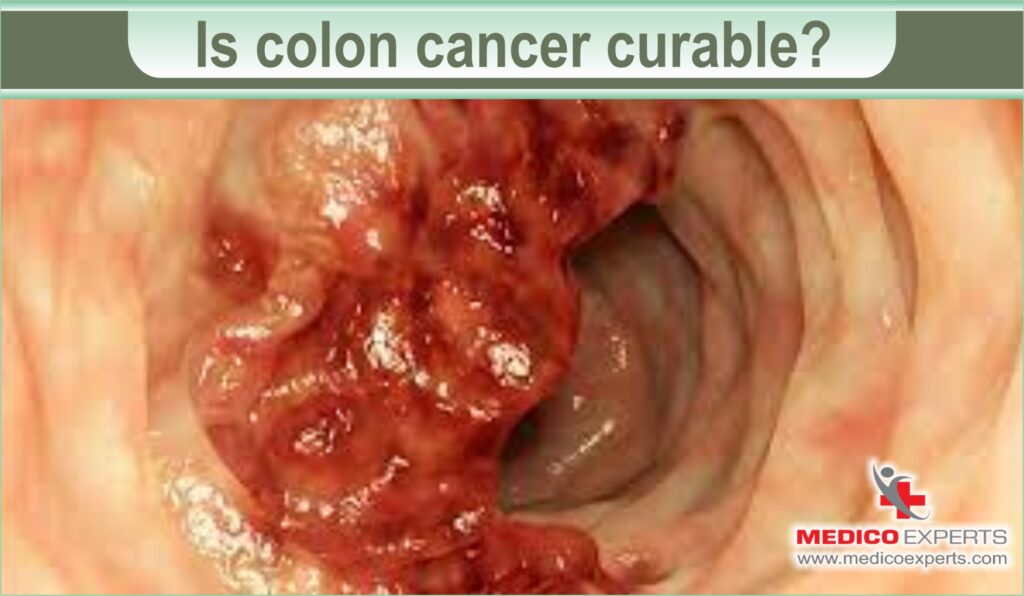
Colon cancer is treatable and in many cases, when it is diagnosed early. Treatment options for colon cancer include surgery, chemotherapy, radiation therapy, and targeted therapy. The line of treatment depends on various factors such as the stage of cancer, the overall health of the patient, and the effectiveness of the chosen treatment.
With advances in medical technology and early detection methods, the survival rates for colon cancer have improved significantly over the years. Therefore, individuals need to undergo regular screenings and seek prompt medical attention if they notice any symptoms associated with colon cancer.
What is the treatment of colon cancer depending on diagnosis?
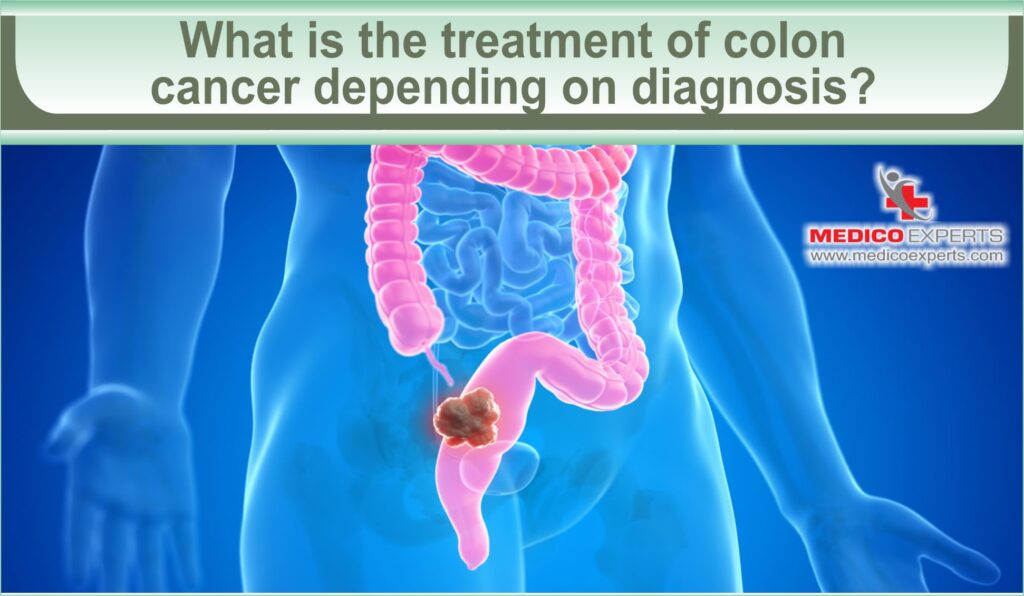
Surgery is the primary treatment of colon cancer. Patients with early-stage colon cancer can be cured by surgery. If the cancer has spread to lymph nodes then chemotherapy is recommended post-surgery.
Patients with advanced-stage colon cancer can also be treated with surgery, chemotherapy, and radiotherapy along with immunotherapy or targeted therapy are well-planned in a sequential manner.
What is the chance of colon cancer reoccurrence?
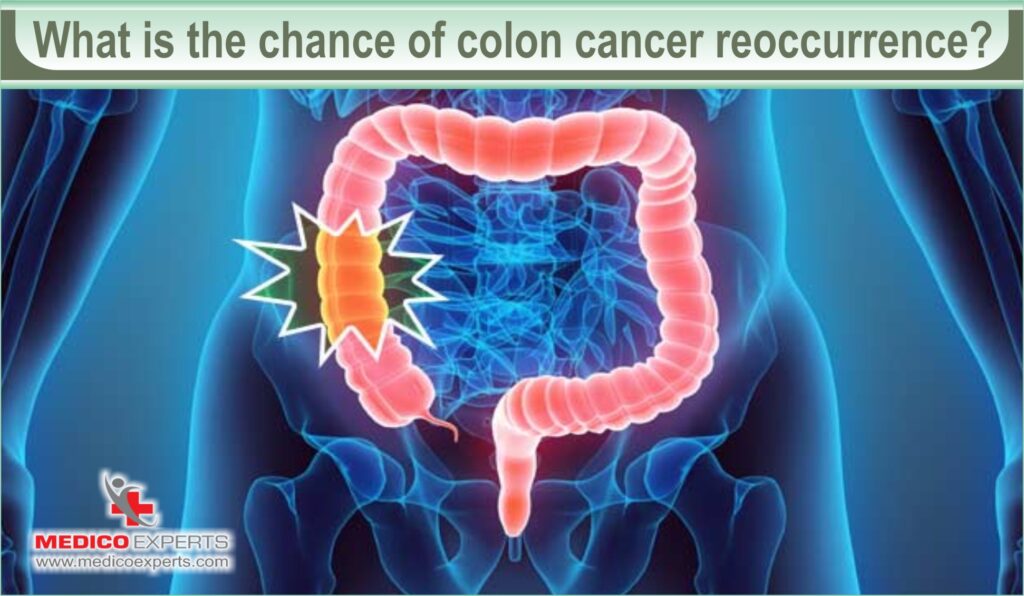
There is a type of reoccurrence called local reoccurrence when the cancer returns to the same place as it was before. This mainly happens when colon cancer surgery has not been performed properly. In reputed hospitals, colon cancer is resected with a clear margin with no presence of cancer cells at the margin.
Distant reoccurrence occurs when the cancer has spread to other parts of the body away from the site of origin.
The chance of distant reoccurrence is low in the case of stage 1 and stage 2 cancers. Distant reoccurrence is possible in case of stage 3 cancer but it should be monitored using periodic blood tests and CT scans and administering proper chemotherapy.
Patients who have mutations in DNA mismatch repair genes respond well to immunotherapy. For these patients, immunotherapy is the treatment of choice.
Can colon Cancer patients live longer lives after the diagnosis?
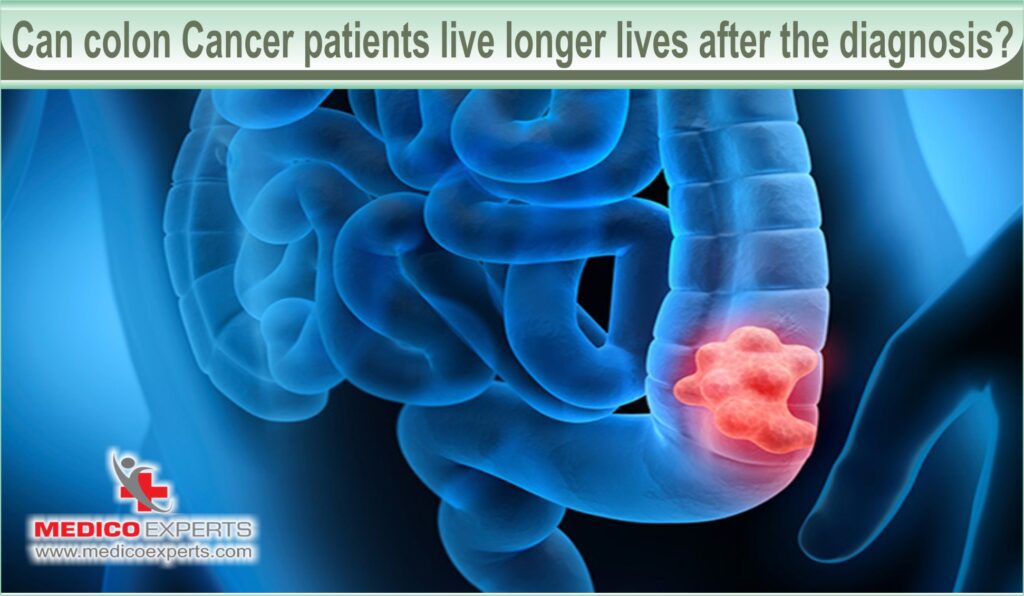
Studies have demonstrated that individuals with stage 1 colon cancer can live just as long as others in the general population.
For advanced colon cancer patients, proper treatment has to be performed to check the reoccurrence of the cancer. It has to be remembered that if cancer can be operated the patient has a high chance of disease-free survival.
Nowadays, individualized treatment for colon cancer is available in reputed hospitals across the world. The individualized treatment depends upon the characteristics of the tumor.
What are the long-term side effects that a colon cancer patient may face?
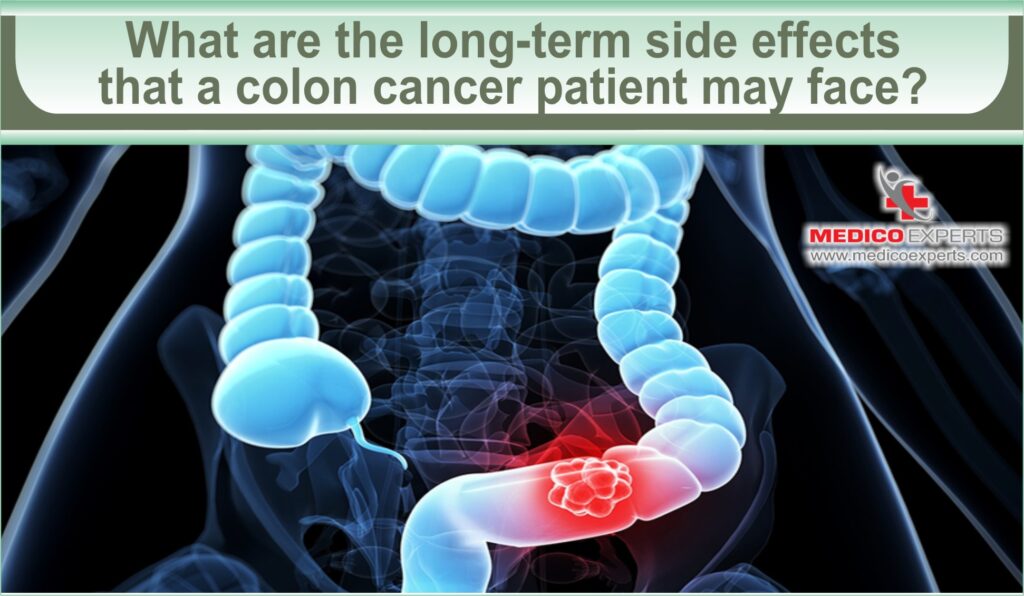
Some of the long-term side effects that a colon cancer patient may face include:
- Patients may experience changes in bowel habits, such as diarrhea or constipation, as well as ongoing digestive discomfort.
- Fatigue can persist even after treatment completion, affecting daily activities and quality of life. -Both men and women may experience sexual problems, including erectile dysfunction or vaginal dryness, due to the physical and emotional effects of cancer treatment.
- Some patients may experience “chemo brain,” characterized by memory problems, difficulty concentrating, and overall cognitive impairment.
- Anxiety, depression, and fear of cancer recurrence are common among cancer survivors and may require ongoing support and counseling.
- Surgery, chemotherapy, and radiation therapy can cause physical changes to the body, such as scarring, hair loss, or weight changes.
- Certain cancer treatments may increase the risk of developing other types of cancer later in life, requiring regular monitoring and surveillance.
What is the minimal residual disease in colon cancer treatment?
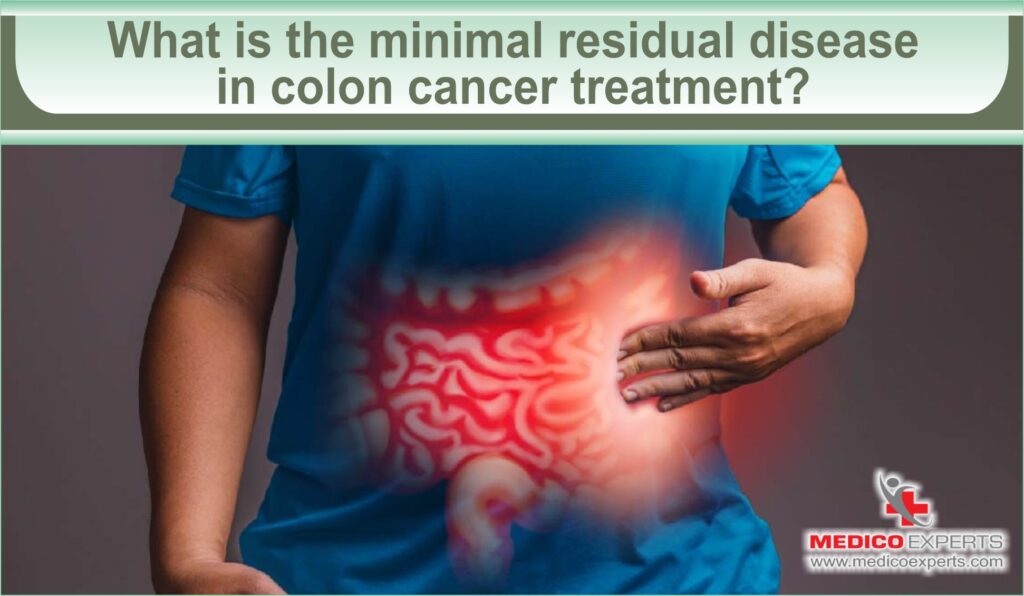
There is a stage of cancer when it is not detected by blood tests or CT scans but it remains inside the body. This type of stage is known as minimal residual disease. By using very specific DNA tests the high chance of cancer reoccurrence can now be detected.
Can young patients have colon cancer?
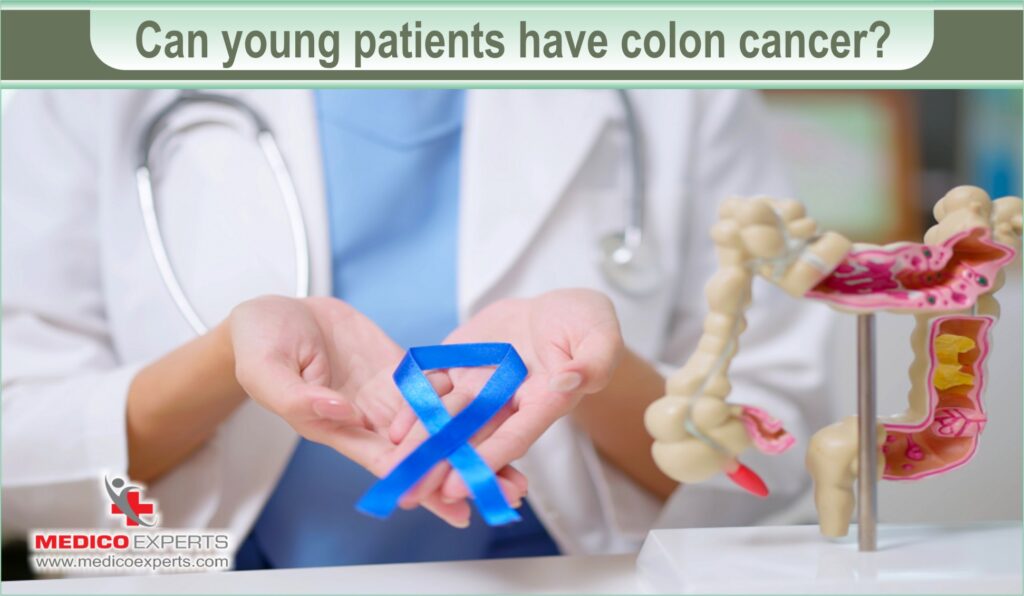
Earlier the initial age for colonoscopy screening for colon cancer was 50 but now it has been reduced to 45. The reason is many young people in their 40s are having colon cancer. If you are passing blood in your stool, or a change in your bowel habit then do not forget to consult the physician.
The initial treatment should be well-planned and effective to check the further progress of the disease. Therefore it does matter where you go for your treatment after the diagnosis of colon cancer.
Conclusion
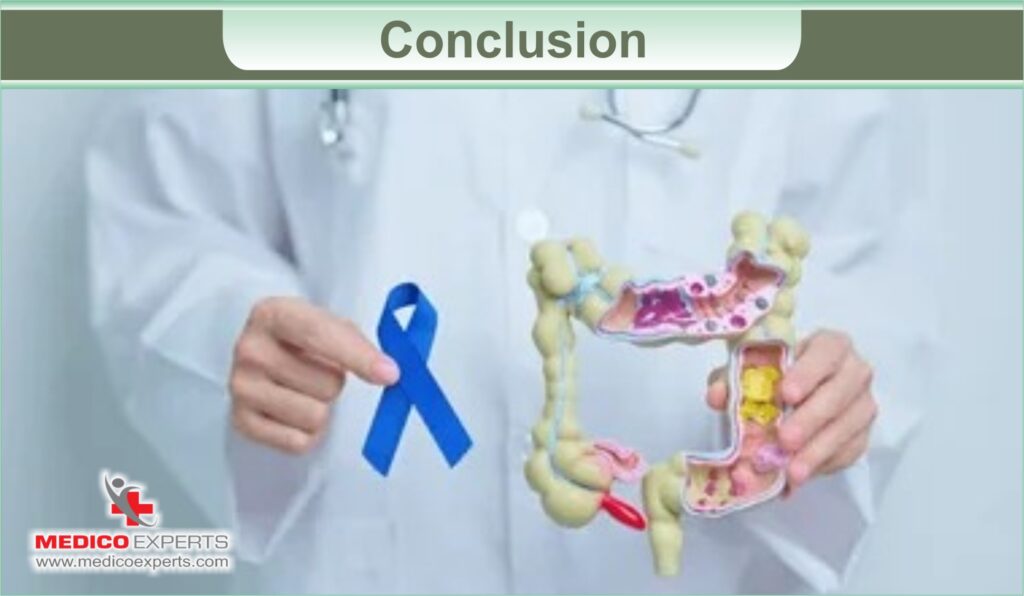
Stage 1 and 2 colon cancer is completely curable after surgery and chemotherapy and it has a high success rate of disease-free survival.
Advanced-stage colon cancer can spread to other parts of the body and may not be surgically removed. But still, chemotherapy, immunotherapy, and targeted therapy play a major role in preventing cancer disease progression.
MedicoExperts is a 24*7 global virtual hospital with a dedicated tumor board for treating colon cancer. All the treatments are well-designed and individualized treatment plans are made for every patient. Doctors can be consulted many times before the start of the treatment to clear all kinds of doubts. Post-treatment monitoring and support are provided to every patient to enhance the chances of disease-free survival.
FAQ :
Q1. What are the chances of surviving colon cancer?
Ans: Colon cancer survival chances are high if it can be operated on. In fact, more than 50% of people live a normal life after colon cancer surgery.
Q2, How to detect colon cancer without a colonoscopy?
Ans: A colon cancer diagnosis is confirmed by colonoscopy and CT scans. However recurrent blood in stool and changes in bowel habits can be signs of colon cancer.
References
https://www.ncbi.nlm.nih.gov/pmc/articles/PMC6791134/
https://www.ncbi.nlm.nih.gov/pmc/articles/PMC4868559/
https://www.ncbi.nlm.nih.gov/pmc/articles/PMC4655109/



